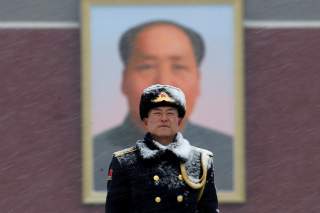What the Next Lunar New Year Holds for China
What should we expect from Beijing this year?
What to Expect in 2019
This is the year of “ji hai,” or the earth pig, and it is often considered an auspicious year in terms of wealth and fortune. For China, however, the year of the pig will probably be a transitional reset year marked with some strategy and policy recalibrations.
In 2018, Beijing did not fully anticipate the nature, scope, and extent of American “whole-of-government” pushback under President Donald Trump. Xi also did not foresee bipartisan Congressional support for Trump’s pushback, U.S. popular and international community support, BRI setbacks, and the Chinese declining economic trend lines. Xi gambled that Trump would not fully commit to the new muscular U.S. National Security Strategy and National Defense Strategy. Xi hoped Trump would acquiesce like previous administrations, the BRI would continue to expand, and the Chinese economy could weather the trade war. He was misguided on all accounts, particularly regarding the deceptive strength and stability of the Chinese economy. Xi is now urgently trying to find an acceptable accommodation to the prolonged trade dispute without appearing to bow to U.S. demands.
As outlined in a recent article titled “On U.S.-China Trade, Will Xi Jinping Keep His Promises To Trump?,” Xi faces a dilemma. He can either accept an unpopular deal with structural changes that he can mitigate on the margins and ensure enduring economic prosperity or pursue a nationalistic course that will further weaken the economy, foment social unrest, and erode the CCP’s political legitimacy and authority. At risk is the much-cherished Chinese Dream that he has embraced as his own. The first path will keep the dream alive while the second will deflate it.
So, until the trade talks successfully conclude with a mutually acceptable and enduring agreement, Beijing actions will be tempered and measured, and Xi will refrain from any provocative behavior that could upset the delicate negotiations. Afterwards, Xi and the CCP will be at an inflection point. They will need to decide whether or not to double-down on China’s assertive activities in 2018 to brazenly challenge U.S. preeminence. Alternatively, Beijing could choose to tone down their political rhetoric and public diplomacy, and scale back their forceful actions. China could once again assume a lower profile in accordance with Deng Xiaoping’s iconic dictum of “hide our capacities and bide our time, be good at maintaining a low profile, and never ever claim leadership.”
I assert that Xi will choose the latter despite the potential political and popular backlash from some quarters of the CCP and some segments of the Chinese populace respectively. All in all, Xi believes that China took two steps forward in 2017 and 2018, and must now take one small step backward in 2019 while still moving forward in the coming years. The backstep is necessary if he is going to keep the Chinese economic engine running on all cylinders. That being said, the explicit and implicit strategic objectives remain unchanged. Beijing will continue to challenge U.S. preeminence and the Western-oriented world order. China will expand and protect its political and economic interests through sharp power and predatory economic practices. Xi will pursue new diplomatic and economic partnerships via the BRI and widen and deepen its security influence. Additionally, Beijing will further develop its capabilities and bolster the international standing of the PLA to become a military superpower. Finally, China will increase and enhance its global military access through potential basing options in Africa, Europe, Latin America, and Oceania. But Xi will do so, more subtly, cautiously, incrementally, and low-key.
At the end of the day, Beijing will never abandon its national goals and global ambitions. China may on occasion slow down or take a small course correction, but it will always eventually return to its guiding North Star—the expansionist Chinese Dream. The next opportunity to do so will be the 2020 U.S. presidential cycle which brings with it the possibility of a new administration with new priorities and new opportunities that Beijing can shape in its favor. For Washington, Beijing may become again emboldened and accelerate the pace of its deliberate march toward regional and global preeminence if left unchallenged and unhindered. Like a boulder rolling down a steep hill, China’s problematic behavior will be much easier to stop now than waiting until it gains speed and momentum.
Tuan Pham has extensive professional experience in the Indo-Pacific, and is widely published in national security affairs and international relations. The views expressed therein are his own.
Image: Reuters

